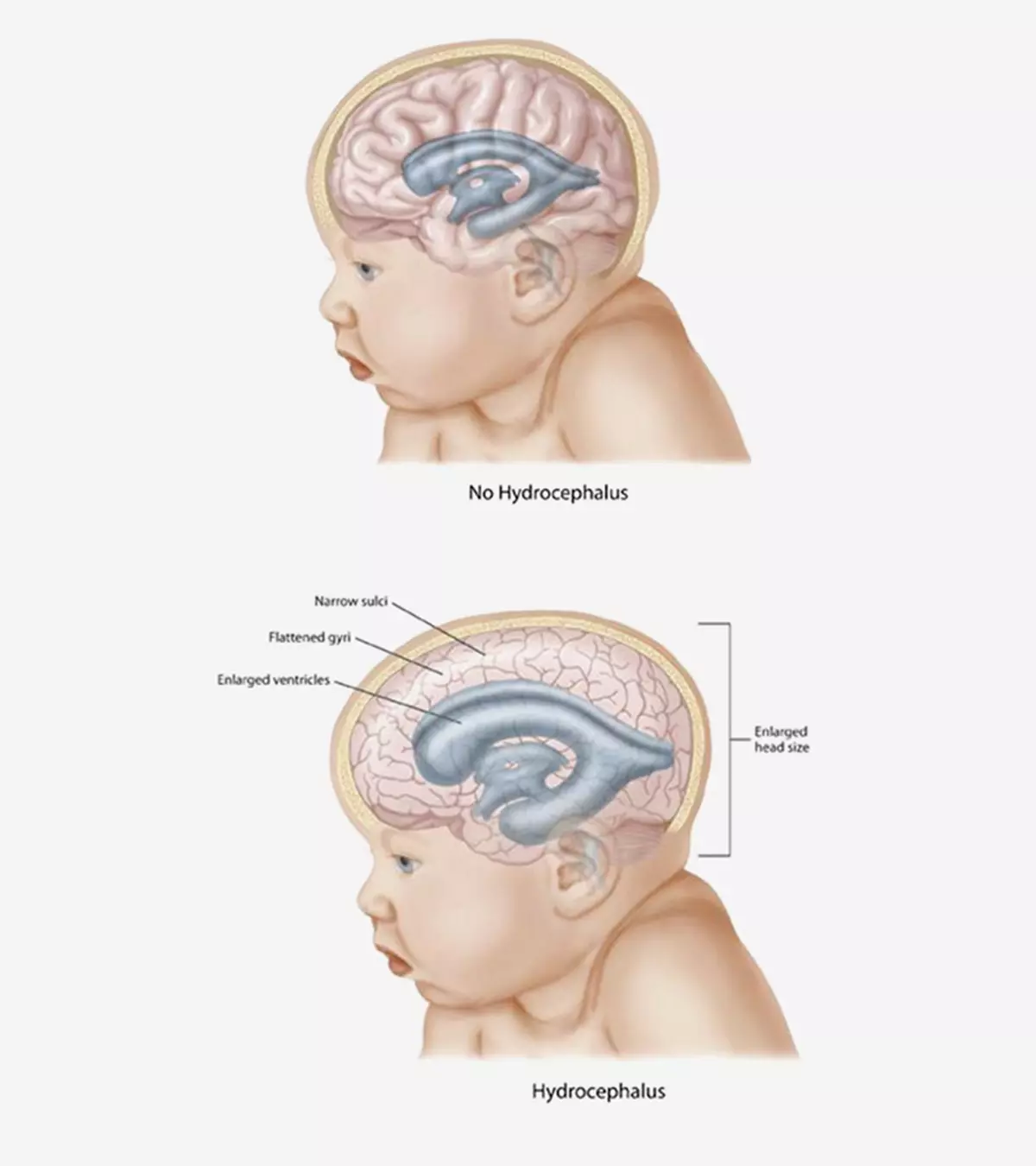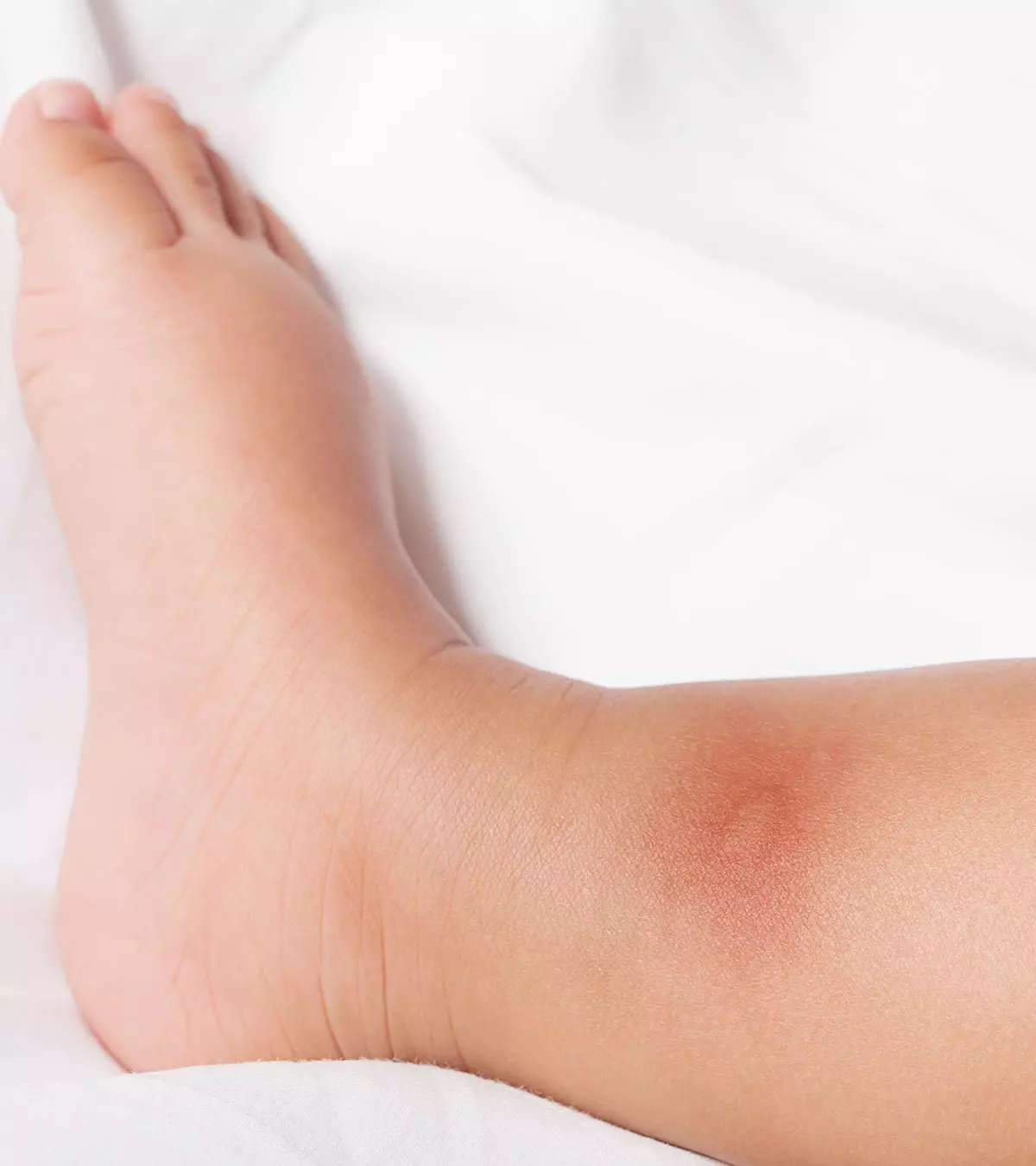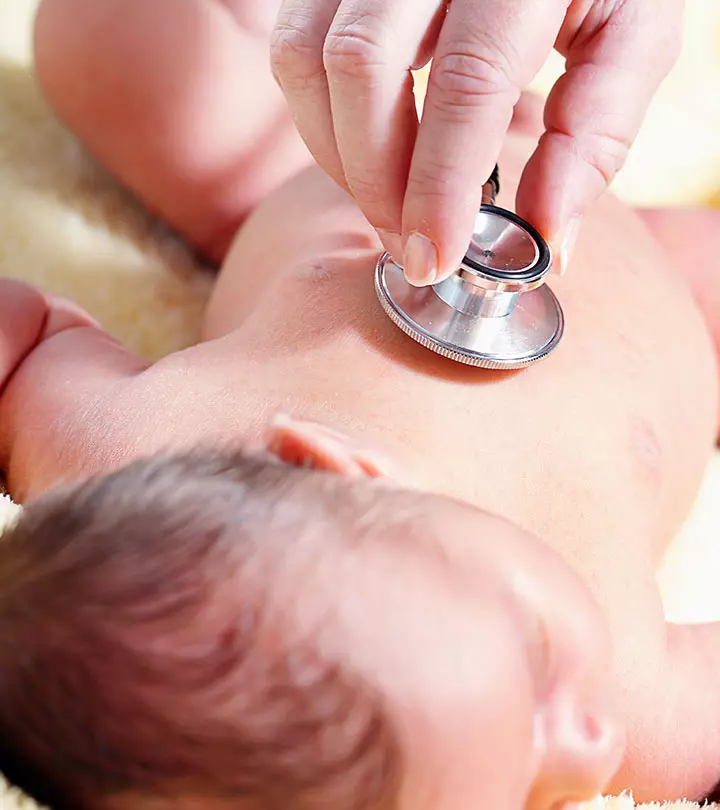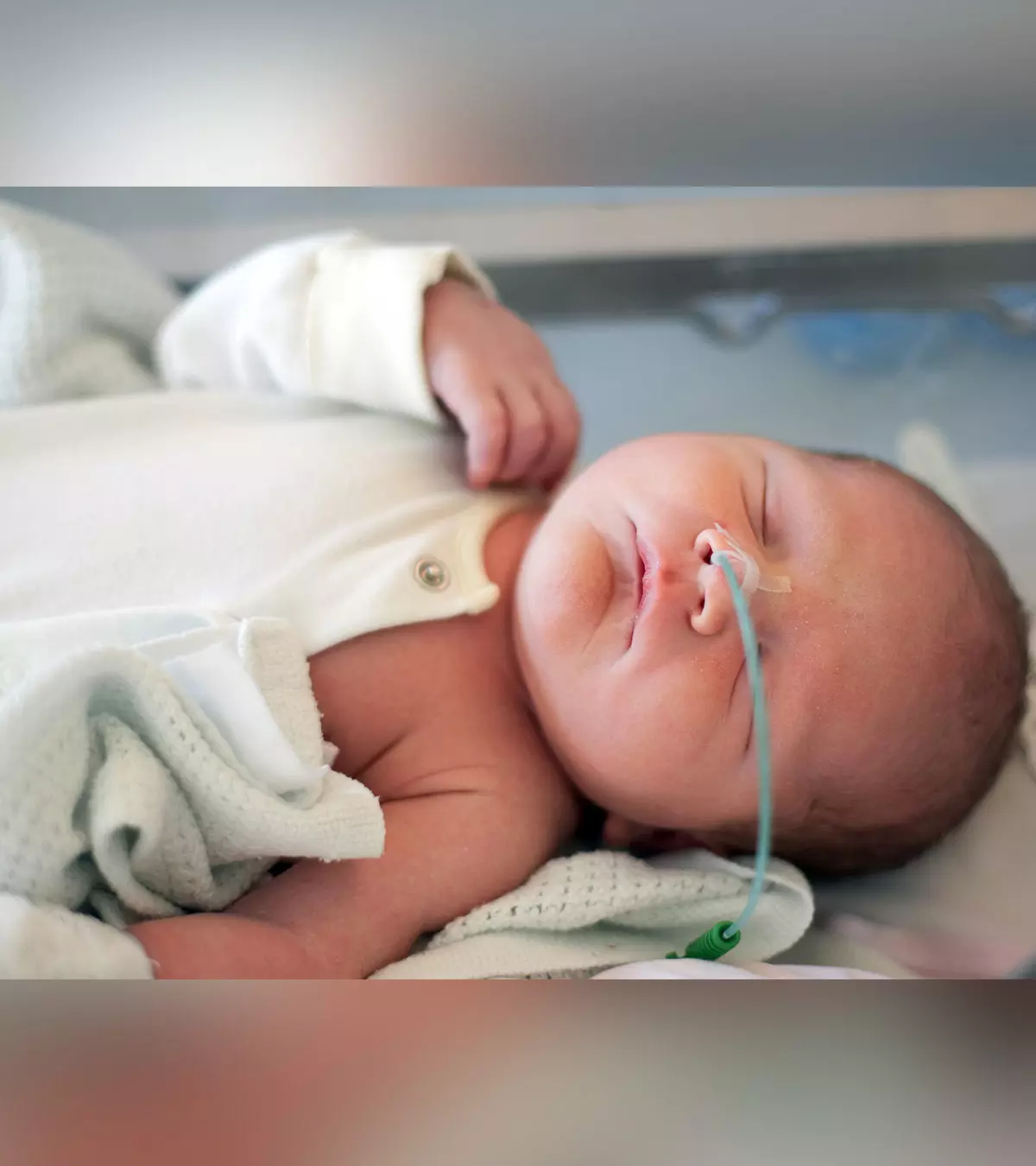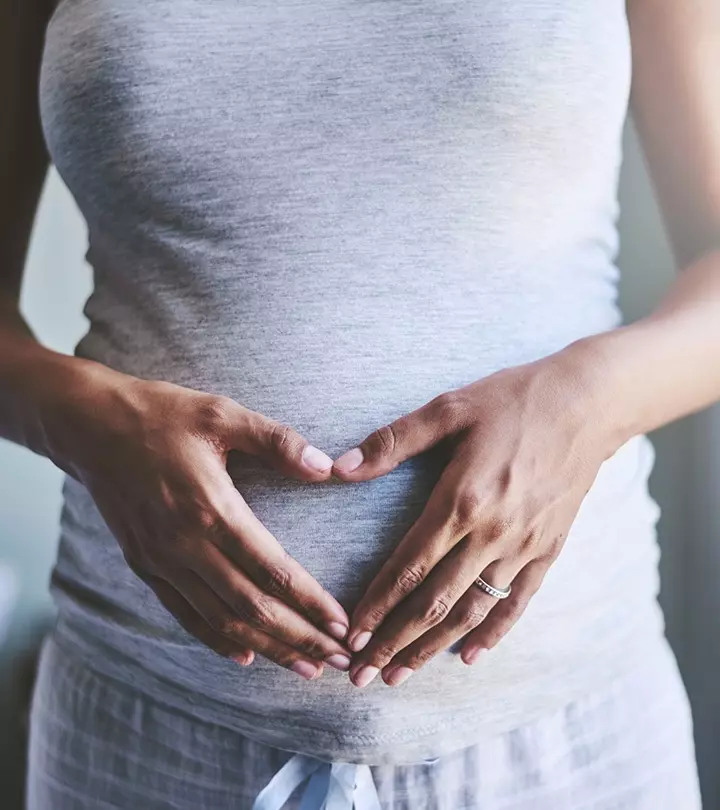
Image: iStock
The 3rd-week pregnancy symptoms may seem faint or barely noticeable to some mothers. Despite that, it is one of the crucial phases of pregnancy. It is when the fetus begins to develop the neural tubeiA hollow structure in a developing embryo that forms the brain and spinal cord. , which leads to the formation of the nervous system eventually. Several precursor versions of other organ systems also form during this week, making the 3rd week of pregnancy an essential phase.
Read this post to learn the symptoms of the 3rd week of pregnancy, the various developments of the fetus, and how to take care of yourself and the baby during this phase.
Key Pointers
- The third week of pregnancy is marked by faint changes and barely visible developments.
- You may experience symptoms such as spotting, hormonal fluctuation, breasts sensitivity, and frequent urination.
- Refraining from strenuous activities, avoiding toxic habits, and staying relaxed are some of the tips to follow during pregnancy.
- Your doctor may advise you to take specific nutrients that can help with the various developments of the fetus.
Changes Occurring In The 3rd Week Of Pregnancy
The following changes occur in the third week (1):
- After being fertilized by a sperm, the female egg moves into the fallopian tubeiA hollow tube-like structure that connects ovaries to the uterus and forms a channel for the eggs to pass. to implant itself into the uterine lining.
- A day or two after conception, the egg (now the embryo) splits into two cells, and three days later, it splits into 16 identical cells.
- This cell division forms a central fluid-filled cavity called the blastocoel, with the embryo now referred to as the blastocyst.
- The blastocyst is embedded into the uterine wall and comprises the inner, outer, and middle layers. The inner layer forms the baby, and the outer layer forms the placentaiA temporary organ that connects the baby to the uterus and provides oxygen and nutrients to it. , which grows and supplies food and oxygen to the growing baby.
- Finally, the middle fluid-filled cavity will form an amniotic sac (filled with amniotic fluidiClear, yellowish fluid surrounding the fetus in the uterus and provides protection and nutrients to the growing baby. ) that cushions the baby throughout pregnancy.
Implantation is followed by an increase in estrogeniA sex hormone responsible for the development of female sexual characteristics. and progesterone hormone production during this week.
In addition, the hCG (human chorionic gonadotropiniA hormone produced by the placenta that helps thicken the uterine lining for fetal development. ) hormone is also released in the blood, signaling the brain to stop ovum production.
 Quick fact
Quick factSigns And Symptoms Of The 3rd Week Of Pregnancy

The changes in hormone levels in the early weeks of pregnancy may cause certain physiological changes. The symptoms may vary among women, with some having many signs and others having none. However, some common symptoms during early pregnancy are (2)
- Spotting or a red or pink discharge (also called implantation bleeding), which may indicate egg implantation in the uterus. However, any severe, abnormal bleeding or pain in early pregnancy should be evaluated.
- Nausea or vomiting due to fluctuating hormones. Severe vomiting and nausea (morning sickness) might make you dehydrated.
- Fatigue and sleepiness
- Breast tenderness
- Food cravings or aversions
- Heightened sense of smell
- Bloating and constipation due to a surge in progesteroneiA female reproductive hormone that plays an important role in menstruation, pregnancy, and breastfeeding. hormone, which slows down the digestion process
- Heartburn
- Changes in taste, such as a strange metallic taste in the mouth
- Cramping due to implantation bleeding
- Headaches, dizziness, and mood swings
- Increased urination
- Slight rise in basal body temperature
- Emotional changes like anxiety and excitement due to hormonal fluctuations
These signs of pregnancy may show within a week of conception or after a few weeks in some women. Contact a healthcare provider if you notice worsening symptoms to help detect any underlying health conditions.
Chelsie Remund, a mother of one, shares how she learned about her pregnancy when she was three weeks pregnant. She writes, “I hadn’t missed my period; however, I know my body enough to know something was DEFINITELY different… The symptoms I normally have when my period is approaching were fairly similar, so I wasn’t too nervous at this point. The only reason pregnancy was a thought at this time was because I had extremely sore breasts and extreme fatigue. Oh! And let’s not forget the raging hormones!” Later, she took a pregnancy test, which came out positive (i).
Pregnancy Test In The 3rd Week Of Pregnancy

If you experience any of the above pregnancy symptoms and are keen to test for pregnancy, consider waiting a week longer. Experts recommend waiting until the day you expect your menstrual period to start to get accurate pregnancy test results. This is considering the variability of ovulation timing, fertilization, and implantation in women (3).
 Point to consider
Point to considerYour Baby’s Development At Three Weeks
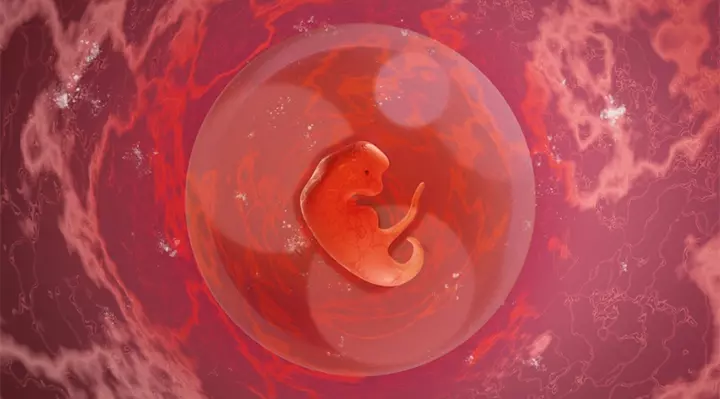
This week is crucial for the baby’s development. It marks the beginning of the neurulation process (central nervous system and neural tube development) and the development of the circulatory and gastrointestinal systems. The development of neural tube defects in the fetus may also occur during this week, so ensure adequate maternal folic acid intake. Your baby may be around 0.048 millimeters (0.0019 inches) long in the third week, typically the size of a pinhead (4).
Tips For You In The 3rd Week Of Pregnancy

Here are some tips to follow to help stay healthy throughout your pregnancy (4):
- Stay hydrated and drink lots of fluids, but avoid sodas, tea, coffee, and sugary drinks.
- Do not strain yourself or indulge in activities that may exert pressure on your abdomen.
- Follow a safe and regular exercise routine after consulting your physician.
- Avoid using illicit drugs and alcohol. Consult your doctor before taking any medications.
- Ensure you eat a well-balanced meal with sufficient protein, essential nutrients, and vitamins.
- Refrain from smoking and excessive caffeine intake.
- Take folic acid and calcium supplements, which are vital for you and your baby’s development.
- Ensure to rest and get adequate sleep.
- To combat stress, practice mindfulness and other techniques such as deep breathing, meditation, and prenatal yoga. You may also listen to music and go on short walks.
 Quick tip
Quick tipNutrition Required In The 3rd Week Of Pregnancy

Proper nutrition is paramount for a healthy pregnancy. Here are some healthy foods to include in your diet:
- Fruits and vegetables: Ensure you include all kinds of fresh fruits and vegetables (including starchy vegetables and green leafy vegetables), which are rich sources of fiber, vitamins, and minerals.
- Protein and dairy: Add milk and milk products that are rich in calcium and protein-rich foods such as pulses, eggs, and meat to your diet.
Before planning your pregnancy, contact your doctor, who may recommend taking prenatal vitamins and supplements such as (5)
- Folic acid: It is vital to prevent birth defects. You can also get folic acid from citrus fruits, beans, cereals, pasta, rice, and green leafy vegetables.
- Iron: Experts state that you need twice the regular amount of iron during pregnancy. Iron supplements are prescribed in early pregnancy to avoid the risk of iron deficiency anemia during pregnancy. It’s important to note that anemia affects around 37% of pregnant women, according to the World Health Organization (WHO). To boost iron levels naturally, incorporating iron-rich foods into the diet is essential. Some examples include foods such as lean meat, chicken, leafy greens, beans, and cereals.
- Calcium: It is essential for developing your baby’s bones, teeth, heart, muscles, and nerves. Milk and its products, soya beans, green leafy vegetables, and nuts are calcium-rich foods.
- Vitamin D: It is required for your body to absorb calcium. It also helps the body’s nerves, muscles, and immune system work properly. Besides vitamin D supplements, consume foods rich in vitamin D, such as fish, milk, and cereals.
- DHA: It is an omega 3 fatty acid that aids in fetal growth and development, especially the eyes and brain. Seafood is rich in omega 3 fatty acids. However, consult your doctor about which fish are safe to consume. Some other food sources rich in DHA include walnuts and flaxseeds.
- Iodine: You need iodine for proper thyroid gland functioning and fetal nervous system development. Include foods rich in iodine, such as iodized salt, milk, and yogurt, in your diet.
If you are doubtful about consuming any specific foods, consult your doctor.
Frequently Asked Questions
1. What can I expect to see at a 3-week ultrasound?
Routine ultrasound is done at six to nine weeks of pregnancy. However, an early ultrasound may sometimes be recommended for other reasons. At three weeks of pregnancy, ultrasound typically shows the thickened lining of the uterus preparing for the implantation of the fertilized egg (6).
2. I am 3 weeks pregnant and constantly hungry. Is this normal?
Yes. It is normal for some women to experience constant hunger as an early pregnancy symptom (7). The hormonal changes during the early stages of pregnancy can make you hungry.
3. Does an early positive pregnancy test mean twins?
Twin pregnancy increases hCG levels (a pregnancy hormone). Since pregnancy tests detect the level of hCG in the urine, they might sometimes give an early positive result. However, this is not a confirmatory test, and further detection is needed to confirm twin pregnancy (8).
4. When should I take a pregnancy test?
You can take the pregnancy test if you have missed your period after having unprotected sex. If your menstrual cycle is irregular or you do not know when you will get your next period, you may take the home pregnancy test after 21 days of unprotected sex (11).
Not all women experience significant 3rd-week pregnancy symptoms. Many may have only been concerned about missed periods. Some women may experience early symptoms such as bloating, spotting, and cramping. You may try a urine pregnancy test at home in the third week. However, many may need to repeat or wait a few more days to confirm the pregnancy test. You may begin prenatal care such as taking prenatal vitamins, following a healthy balanced diet, and other measures when you plan to conceive. Babies begin to grow before the mother knows or confirms pregnancy. So, early preconception care can enhance your pregnancy outcomes.
Infographic: Dietary Needs Of A Three Week Pregnant Woman
At three weeks of pregnancy, your baby is in the significant stages of development. So, during this stage, you should eat a healthy and nutritious diet to meet all the nutritional requirements for the baby and you. The following infographic includes major food items you must include in your pregnancy diet to get adequate nutrition.

Illustration: Momjunction Design Team
Illustration: 3 Weeks Pregnant: Symptoms Baby Development & Tips To Follow

Image: Stable Diffusion/MomJunction Design Team
Personal Experience: Source
MomJunction articles include first-hand experiences to provide you with better insights through real-life narratives. Here are the sources of personal accounts referenced in this article.
i. I knew I was pregnant at 3 weeks.https://medium.com/@chelsieremund/i-knew-i-was-pregnant-at-3-weeks-445c1cdbcd29
References
- Baryiah Rehman and Maria Rosaria Muzio; (2021); Embryology Week 2-3.
https://www.ncbi.nlm.nih.gov/books/NBK546679/ - Am I pregnant? Early signs and symptoms.
https://www.nct.org.uk/information/pregnancy/body-pregnancy/am-i-pregnant-early-signs-and-symptoms - How early can home pregnancy tests show positive results?
https://utswmed.org/medblog/home-pregnancy-tests/ - Pregnancy Week 3.
https://americanpregnancy.org/healthy-pregnancy/week-by-week/3-weeks-pregnant/ - Vitamins And Other Nutrients During Pregnancy.
https://www.marchofdimes.org/find-support/topics/pregnancy/vitamins-and-other-nutrients-during-pregnancy - Patience is key: Understanding the timing of early ultrasounds.
https://utswmed.org/medblog/patience-key-understanding-timing-early-ultrasounds/ - Pregnancy: Am I Pregnant?
https://my.clevelandclinic.org/health/articles/9709-pregnancy-am-i-pregnant - Twins Pregnancy Symptoms.
https://americanpregnancy.org/healthy-pregnancy/multiples/twin-pregnancy-symptoms/ - Pregnancy Tests – Urine and Blood.
https://americanpregnancy.org/getting-pregnant/understanding-pregnancy-tests/ - 5 ways to survive stress in pregnancy.
https://www.tommys.org/pregnancy-information/im-pregnant/mental-wellbeing/5-ways-survive-stress-pregnancy - Doing A Pregnancy Test.
https://www.nhs.uk/pregnancy/trying-for-a-baby/doing-a-pregnancy-test/
Community Experiences
Join the conversation and become a part of our nurturing community! Share your stories, experiences, and insights to connect with fellow parents.
Read full bio of Dr. Ben Abbes Taarji Hicham
Read full bio of Vidya Tadapatri
Read full bio of Rebecca Malachi
Read full bio of Aneesha Amonz














